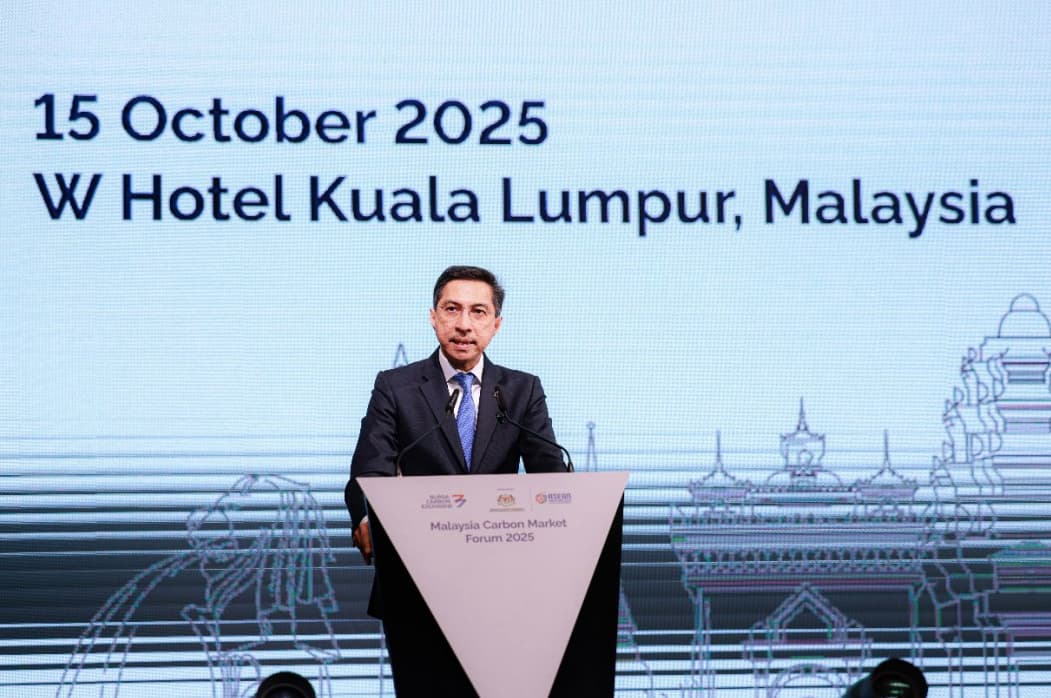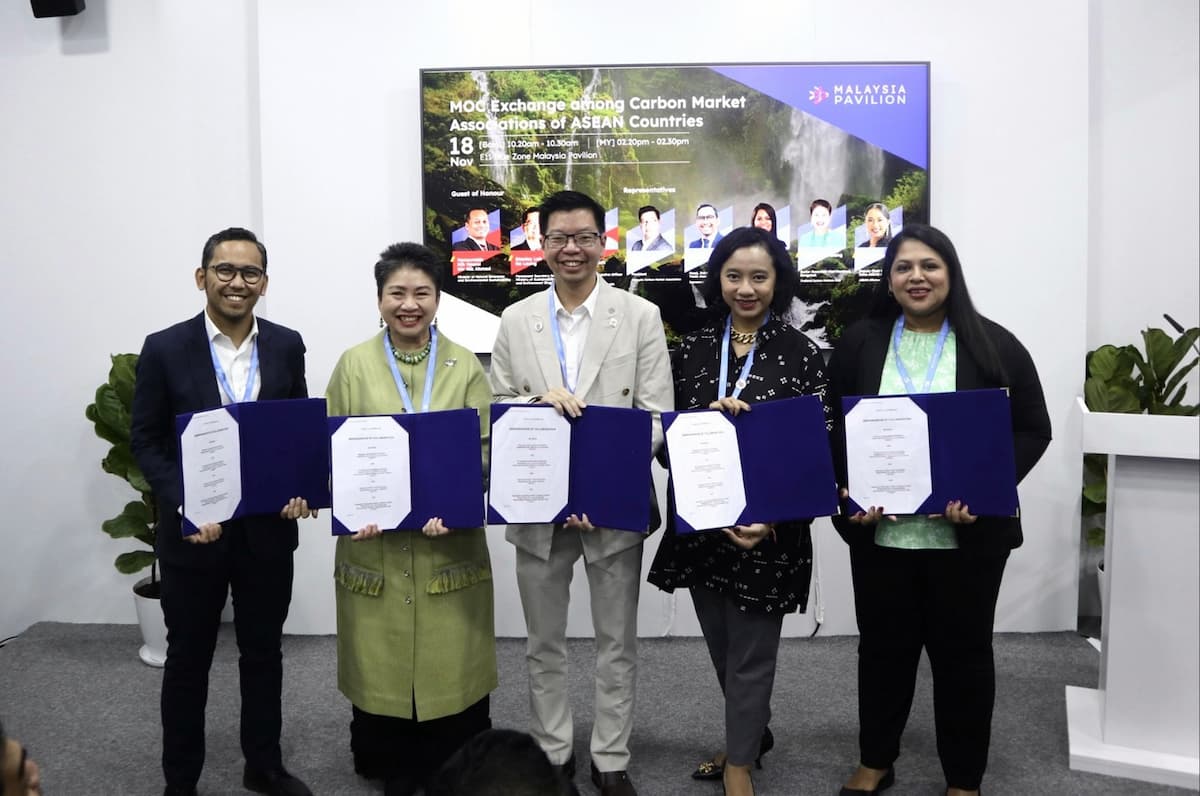
The Bursa Malaysia carbon exchange, established by the Malaysian stock exchange, hosted the ASEAN Carbon Market Forum on Oct. 15. Dato’ Fad’l Mohamed, CEO of Bursa Malaysia, delivered his opening speech. (Photo: The Bursa Malaysia)
As this year’s ASEAN chair, Malaysia is taking an active stance on climate action. The Bursa Malaysia carbon exchange, established by the Malaysian stock exchange, hosted the ASEAN Carbon Market Forum on Oct. 15 under the theme “Empowering Regional Climate Actions Through the ASEAN Common Carbon Framework.”
The event brought together international organizations and industry leaders, including founding members of the ACCF, to discuss the region’s carbon market landscape—covering supply and demand, infrastructure, strategic communication, and capacity building.
Carbon awareness rising, but understanding still lacking
To accelerate the development of ASEAN’s regional carbon market, the Malaysia Carbon Market Association (MCMA) launched the ASEAN Common Carbon Framework (ACCF) at the UN Climate Summit (COP29) last year in partnership with several ASEAN organizations.

The Malaysia Carbon Market Association (MCMA) launched the ASEAN Common Carbon Framework (ACCF) at the UN Climate Summit (COP29) last year. (Photo: MCMA)
MCMA Chair Renard Siew said that since the announcement, his organization has been inundated with calls from people asking how to issue carbon credits, reflecting a widespread lack of understanding of how carbon markets work.
ASEAN’s carbon markets are “like a karaoke session,” he quipped. Countries are at a different stage, but the goal is to make sure everyone sings in harmony.
Gloyta Nathalang, Chair of the Thai Carbon Markets Club (TCMC), noted that while awareness of emissions trading systems (ETS) has grown over the past year, Thailand’s carbon trading volumes have not increased significantly. She identified limited carbon literacy as a major obstacle slowing ASEAN’s regional market development.
From the demand side, Natalia Rialucky Marsudi, Vice Chair of the ASEAN Carbon Market Alliance, observed strong progress in compliance carbon markets, citing cross-border collaborations with Japan and China, and recent carbon credit agreements between Singapore and Thailand.
However, she said many ASEAN carbon projects fail to reach international buyers because their methodologies lack global certification, even as U.S. and European companies continue to prioritize quality of carbon credit.
Anshari Rahman, Director of Strategy and Development at Singapore’s GenZero, urged ASEAN countries to voice their collective interests within international frameworks. He highlighted the Science Based Targets initiative (SBTi), which is set to release updated corporate net-zero standards in the coming weeks, as an opportunity for ASEAN to help shape global rules to its advantage.
.jpg)
Bursa Malaysia hosts a carbon market forum featuring members of the ASEAN Common Carbon Framework (ACCF). (Photo: Lin Bo-yu)
Calls for financial support and pilot projects to advance integration
Riza Suarga, Chair of the Indonesia Carbon Trade Association (IDTCA), emphasized the need for tangible implementation. He called for financial alignment support and pilot programs that prioritize high-quality credits to accelerate ASEAN’s carbon market growth. He noted that in addition to proactive partners like Singapore, Japan and South Korea are also key collaborators with strong quality standards.
Gloyta agreed, saying ASEAN has the potential to form its own integrated carbon market system, with Singapore as the main buyer, and Thailand, Indonesia, and Malaysia as major suppliers, provided all participants meet each other’s standards.
Renard added that the ACCF is working to improve methodological standards to overcome the perception of low-quality projects in parts of the region.
The Philippines, which will assume the ASEAN chairmanship next year, is expected to expand the ACCF’s reach. Ginggay Hontiveros-Malvar, Chair of the Aboitiz Foundation, said that while the Philippines has yet to establish a compliance market, participation in the global net-zero movement is inevitable.
She anticipated that under Philippine leadership, ASEAN will push further development of its voluntary carbon market, including boosting credit supply, enhancing market infrastructure, and improving credit quality.
.jpg)

